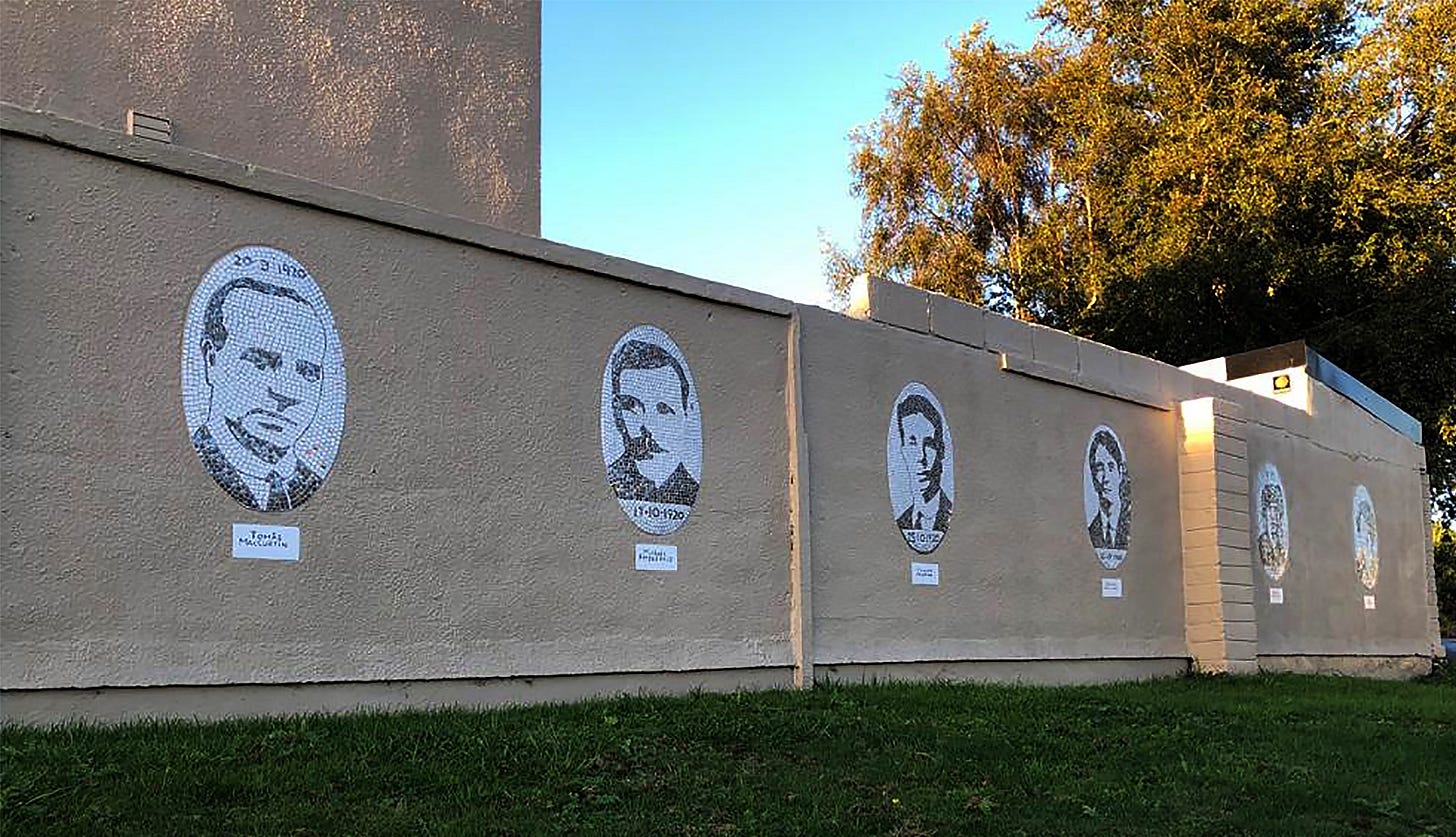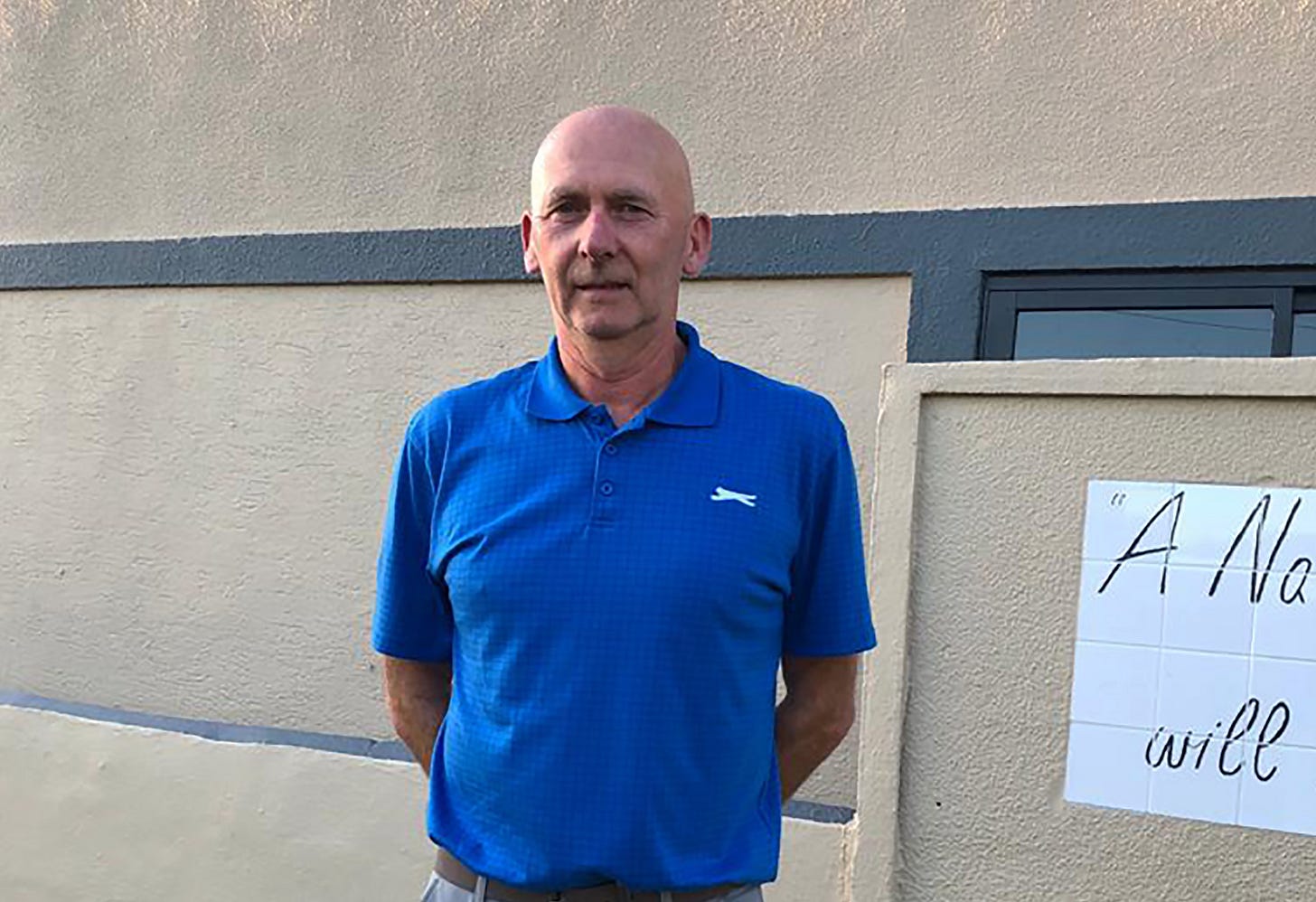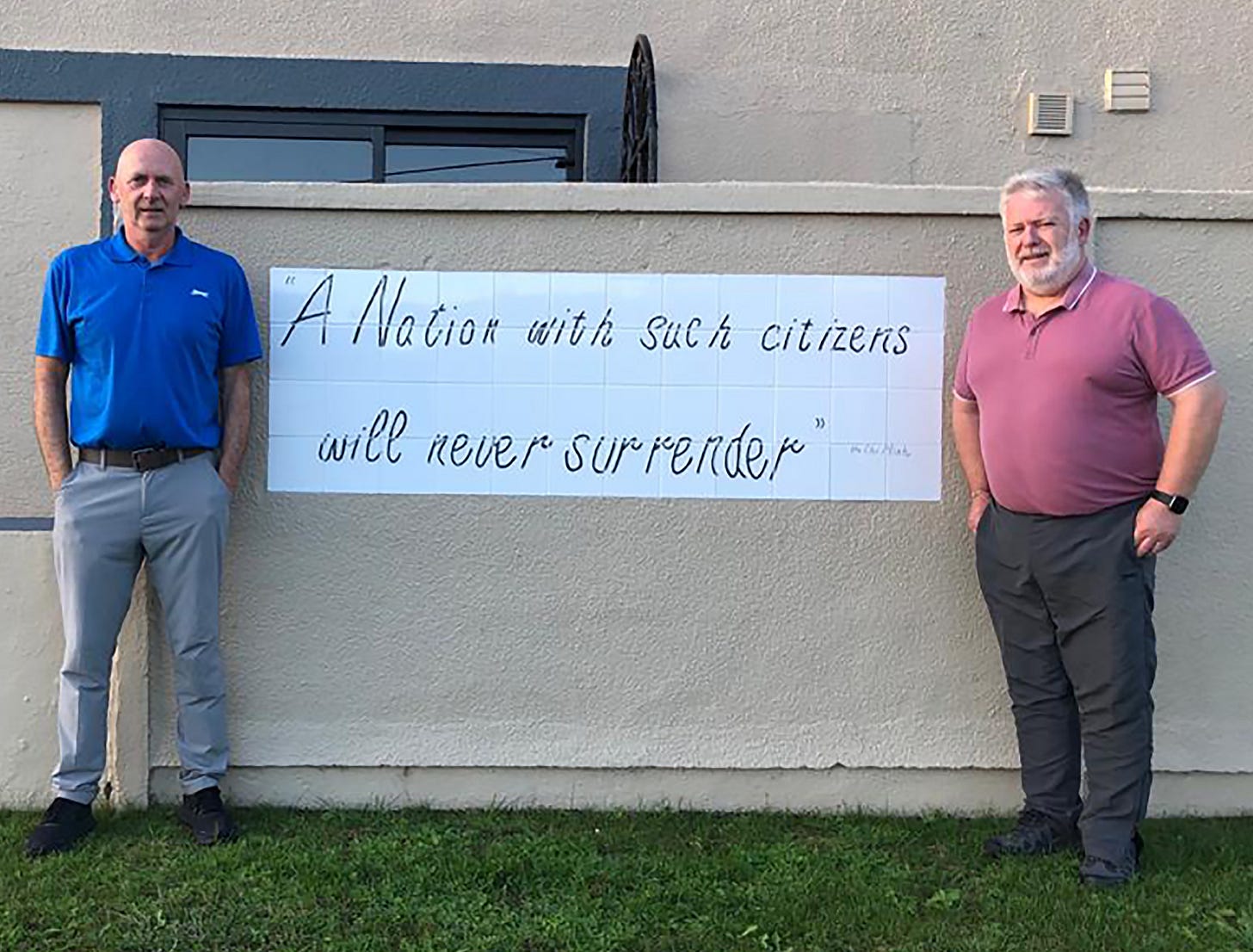Burning Cork a new CD
Ballyvolane songwriter John Murphy has commemorated the terrible events of the Burning of Cork in 1920 with the collection of songs that is his debut album.

Pouladuff road man Joe Murphy was just 24 years old when he died on hunger strike in the autumn of 1920.
It took the young republican, who had been imprisoned in Cork Gaol for carrying a fake bomb used in combat training, 76 days to die.
He was one of 11 men incarcerated in Cork Gaol to go on hunger strike in protest at the detention of Lord Mayor of Cork Terence MacSwiney, who was sent from Cork Gaol to London’s Brixton Prison: McSwiney began his own hunger strike the day after Joe Murphy.
“The hunger strikers of the eighties, like Bobby Sands, all had water,” John Murphy, no relation, says. “Joe Murphy didn’t take water. The only things that passed his lips were some painkillers on the day of his death. I’d imagine that not having water would have made it even more painful.”
A city council worker who had attended Togher National School, Joe is commemorated in the naming of Joe Murphy Road in Ballyphehane. And on the Northside of the city, he now features in a mosaic mural on the side of the house of tiler and songwriter John Murphy.
John’s wall, which also features Tomás Mac Curtain and Terence MacSwiney amongst others, has become something of a local landmark in Ballyvolane since he took the creative project on in the first Covid-19 lockdown of 2020, when he was out of work.
And including Joe Murphy was important to John, who regards him as one of the rarely remembered “hidden heroes” of what was a year of bloodshed and suffering for Cork people.
“Not many people know about Joe, the reason being that he died within hours of Terence MacSwiney, who was on hunger strike in Brixton,” John tells me. “The enormity of the Lord Mayor dying on hunger strike completely overshadowed Joe Murphy, and that’s why many people don’t know about him.”
John himself first became familiar with Joe Murphy’s story while researching his debut album, A City in Flames, which commemorates events and characters connected to the Burning of Cork, which happened less than two months after Joe Murphy’s death.

The Burning of Cork took place on the night of December 11 1920. While we know that the cataclysm was a reprisal carried out by Black and Tans in response to an IRA ambush in Dillon’s Cross, there’s no doubt that the deaths of hunger strikers Terence MacSwiney, Joe Murphy and a third man, Michael Fitzgerald, had contributed to the politically incendiary atmosphere in Cork that winter.
Of course, nobody could have predicted that 100 years after the burning, looting and pillage of Cork, the city would be engulfed in a silent crisis of an utterly different nature: Covid-19 restrictions upended not only John’s album launch plans, but all of the Burning of Cork centenary commemoration events, he points out.
“Covid destroyed the commemorations,” he says. “Loads of things were planned: different marches and events.”
“This is actually our third attempt at launching the CD too; we had grand notions of Cork City Hall and we had that booked for the original launch, which would have been very appropriate as the City Hall was also burned down. It would have been a real honour to do that, but those plans were scuppered for obvious reasons.”
A late launch is better than none
This week, John finally got to launch his CD, with a gig as part of Cork Folk Festival featuring many of the singers from the album.
His mosaic mural, then, was partly in response to his fear that the centenary of 1920 was not going to be effectively marked.
“When the commemoration was going to be a damp squib because of the Covid, I thought, I’d better make a bit of a grand gesture here,” he says.
Finding his voice with Cork Singer’s Club at 54
John Murphy came to music late in life; having never played an instrument or done music in school, he started singing songs, and writing them, ten years ago at the age of 54.
“It’s never too late, as they say,” he says with a laugh. “Now I knock out about a song a week, and most of them are rubbish, of course.”
While John was inspired to take up songwriting by the water protests he was involved in, it was attending Cork Singers Club in his fifties that gave him the confidence to begin singing in public.
“Before I attended Cork Singers Club, I always knew songs, but I was just too shy to sing in public,” he says. “It was a huge hurdle for me to get over, but soon after I started going I was speaking and singing in public. If you had told me five years earlier I’d be doing that, I would have told you you were mad.”
It may seem strange for someone who’s releasing a twelve-track album, ten tracks of which he has written and composed himself, but John says he still doesn’t consider himself a musician. He is, he says, “very poor on the guitar. I’m more of an unaccompanied singer.”
That’s in line with Cork Singers Club’s only house rule: no instruments allowed.
A City in Flames was recorded in a home studio in Killeens and features guest singers including Máire Ní Chéileachair (“the woman has the voice of an angel,” John says) and the great Jimmy Crowley. Two other songwriters, Tim O’Riordan and Cliff Wedgbury, have contributed a song and the whole collection is interspersed with a narration by storyteller Gerry Miller.
For John, the album was not only a huge creative project to undertake, but also a deep dive into a history that had seemed remote to him prior to his research for the album.
“I would have known very little about history, but when I started delving in, I started getting obsessed with it,” he says.
“I was aware of the Burning of Cork, but it felt like ancient history, more like it 300 years ago than 100, so far in the past that it was irrelevant. All of a sudden, during the research, I realised that some of the people involved in putting out the fire were still alive in the sixties. That starts to make it very real, then.”
John credits his neighbour, the librarian John O’Leary, with making the CD come to fruition, and indeed for initiating the project. John had been asked to write a song about Joe Murphy by the Ballyphehane 1916 Commemoration Committee, and John O’Leary, he says, “had worked in Ballyphehane library, which is on Joe Murphy road, and was shocked that he knew nothing about Joe.”
“Without John O’Leary, none of this would have happened,” he says. “He was very dogged and determined and he arranged all the funding for the CD. I’m a world champion procrastinator, so I never would have got it off the ground.”
Launching the CD at Cork Folk Festival may not have been the original plan, but for John, it’s a good fit for his ballads, which he considers to be very much in the folk tradition.
“All folk music tells a story that needs to be told,” he says. “And what you hope is that the story gets preserved when there’s a song about it. So it’s been a particular honour to write these songs about those people of one hundred years ago. I hope they’re remembered.”
John Murphy is leading a free Rebels of Cork Walking Tour, complete with song, as part of Cork Folk Festival 2021: meeting on Saturday, October 2, at 1.30pm at the Monument in Blackpool.
Cork 1920: A City In Flames with John Murphy and friends is available for purchase here, with all proceeds to GoFundMe Alana’s Butterfly Life.






